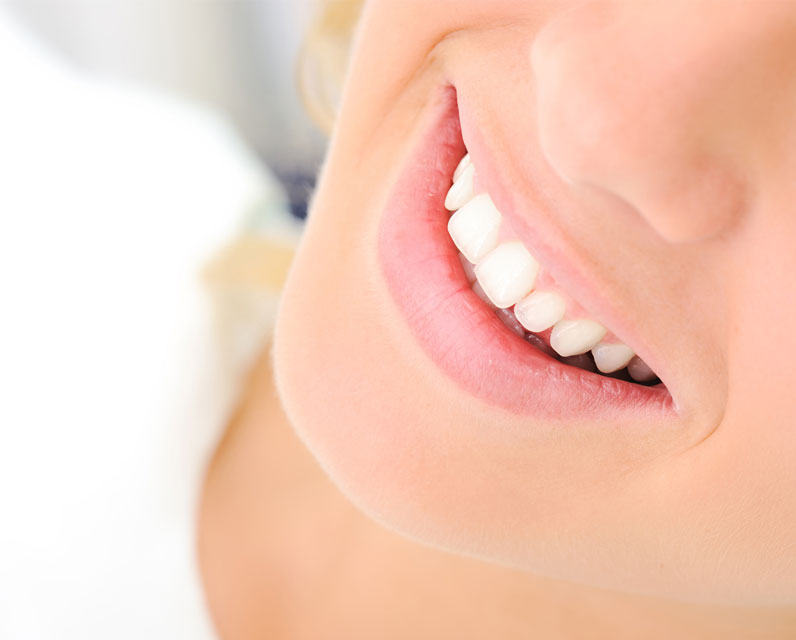What does it mean and how does gingival affection occur?

Gingival disorders are progressive, ranging from mild cases such as gingivitis, when inflammation and bleeding of the gums occur, to worse situations when gingival retraction or diminished alveolar bone tissue occurs and the disease progresses to periodontitis (parodontopathy) leading to some . In the early stages, these conditions do not cause pain and the symptoms can easily go unnoticed. As a rule, the most common symptoms include: Unpleasant breathing that persists Red, inflamed or bleeding gums Constant bleeding during daily dental brushing Feeling pain when chewing food or contacting cold or hot food High sensitivity teeth When the disease progresses . The first treatment is tooth dentition to remove bacterial plaque and tartar, thus eliminating one of the causative factors of the disease. Depending on the situation, a periodontal specimen can also be performed to identify and measure the depth of periodontal pockets and possible bone loss. Contents What are the main causes of gingival bleeding? .
If we do not intervene early to remove it, dental plaque causes inflammation and bleeding gums and creates an environment conducive to the growth of bacteria that attack and destroy the bone in which the teeth are fixed. In addition, an impediment to the early detection of diseases is the preconception that periodontitis is a disease of the elderly, but few know that periodontal disease can occur even from the age of adolescence. In more advanced stages, paradontopic conditions may favor other more serious conditions, such as cardiac or respiratory diseases and even vascular accidents. What is the role of dental enamel? . Forms a barrier against external factors that lead to dental degradation and protects nerve endings.
In addition, it facilitates oral hygiene, being very easy to clean. Untreated on time, thinning of the dental enamel allows an increasing amount of dentin to be exposed, the tooth changes its color and creates a cavity-promoting environment. top What is good daily care of teeth and gums? . I recommend the regular use of interdental oil, a special toothpaste, mouthwash, interdental brush and mouthwash, for daily care of teeth and gums. There are lots of products specifically designed for these diseases that do wonders in the early stages.
Your doctor or pharmacist may recommend you oral antiseptic hygiene products containing aluminum and flour lactate. Take great care when brushing your teeth, because if it is mistakenly executed it may favor the spread of gum disease. A correct brushing of the teeth involves easy movements from the gum to the teeth edge and separate brushing of the dental arches, avoiding pushing food under the gum. As correct as home hygiene, tartar can be removed only in the dental office. Thus, a six-month visit to the dentist, where the full prophylaxis session (scratch, professional brushing, airflow, flushing) is performed, is essential for the maintenance of gingival and periodontal health.
Source : csid.ro
Views : 3125
Popular Article
- (photo) Nude becomes art.
Posted: 2018-03-17, 9810 views.
- The harmful effects of air conditioning on the skin
Posted: 2017-06-08, 8519 views.
- 3 causes of dyed hair discoloration
Posted: 2017-06-15, 8403 views.
- Why early puberty occurs in girls: symptoms, favors, diagnosis and treatment
Posted: 2017-10-24, 8244 views.
- Good or bad skin treatments in the hot season
Posted: 2017-06-07, 7975 views.
Recommendations
- (photo) Nude becomes art.
Posted: 2018-03-17, 9810 views.
- The harmful effects of air conditioning on the skin
Posted: 2017-06-08, 8519 views.
- 3 causes of dyed hair discoloration
Posted: 2017-06-15, 8403 views.
- Good or bad skin treatments in the hot season
Posted: 2017-06-07, 7975 views.
- Risks of practicing sports on hot days
Posted: 2017-06-12, 7549 views.
 4 effective ingredients in the fight against acne.
4 effective ingredients in the fight against acne. How to get rid of hiccups fast
How to get rid of hiccups fast The wheat bran diet: the secret of lost pounds as if by magic
The wheat bran diet: the secret of lost pounds as if by magic The recipe that will sweeten your soul this weekend!
The recipe that will sweeten your soul this weekend!  Is it dangerous or not to refreeze meat after thawing it?
Is it dangerous or not to refreeze meat after thawing it?  The unusual sign of diabetes indicated by saliva.
The unusual sign of diabetes indicated by saliva. What to drink to boost your immune system.
What to drink to boost your immune system. 10 foods that help you never age.
10 foods that help you never age. What actually happens in your body if you drink a cup of coffee for breakfast
What actually happens in your body if you drink a cup of coffee for breakfast 5 surprising benefits of chia seeds
5 surprising benefits of chia seeds